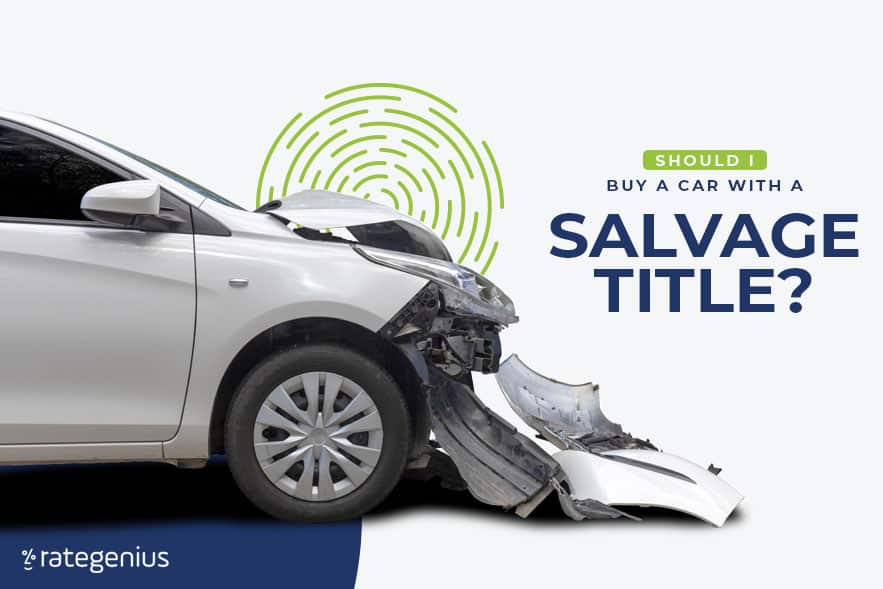When purchasing a used vehicle, you may come across the term “salvage title.” This designation can significantly impact your buying decision, financing options, and insurance coverage. In this article, we’ll delve into what a salvage title is, how it affects car ownership, and what you should consider before making a purchase.
What is a Salvage Title?
A salvage title is a type of vehicle title that indicates a car has been significantly damaged, typically due to accidents, floods, theft, or other incidents. When a vehicle is deemed a total loss by an insurance company—meaning the cost of repairs exceeds a certain percentage of the vehicle’s value—it is issued a salvage title.
In the United States, each state has its own criteria for determining when a vehicle is classified as salvage. Generally, this can happen when repair costs amount to 70% to 80% of the car’s pre-accident value. Once this title is issued, the vehicle cannot be legally driven until it is repaired and passes inspection.
The Importance of a Salvage Title
- Insurance Implications: Vehicles with a salvage title may face higher insurance premiums or limited coverage options. Many insurance companies may refuse to insure a vehicle with a salvage title altogether or only offer liability coverage.
- Resale Value: A car with a salvage title typically has a lower resale value compared to a similar vehicle with a clean title. Prospective buyers often view these vehicles with suspicion due to their history of significant damage.
- Financing Challenges: Securing a loan for a vehicle with a salvage title can be difficult. Many lenders are hesitant to finance these cars because of their diminished value and potential for future issues.
Pros and Cons of Buying a Car with a Salvage Title
Pros
- Lower Purchase Price: One of the most appealing aspects of buying a salvage title vehicle is the cost savings. These vehicles are usually priced significantly lower than similar models with clean titles, making them an attractive option for budget-conscious buyers.
- Potential for Repair: If you have the skills and knowledge to repair the vehicle yourself, a salvage title car can be a worthwhile investment. Once properly repaired and inspected, it may serve you well for years.
- Unique Opportunities: Sometimes, a salvage title may result from minor damage or cosmetic issues, allowing savvy buyers to capitalize on a deal that others might overlook.
Cons
- Hidden Problems: Even if a salvage title vehicle appears to be in good condition, there may be hidden issues that could lead to costly repairs down the road. Thorough inspections are crucial.
- Limited Warranty: Salvage title vehicles typically do not come with warranties, leaving buyers responsible for all repair costs.
- Legal and Registration Hurdles: After purchasing a salvage vehicle, the new owner must navigate the process of having it repaired, inspected, and re-registered. This can be time-consuming and may require additional fees.
How to Evaluate a Salvage Title Vehicle
If you’re considering buying a car with a salvage title, it’s essential to do your due diligence. Here are steps to take before making a purchase:
- Obtain a Vehicle History Report: Use services like Carfax or AutoCheck to get a detailed history of the vehicle. This report will provide information about past accidents, title changes, and other critical details.
- Get a Thorough Inspection: Before finalizing a purchase, have a trusted mechanic conduct a comprehensive inspection. They can identify potential problems that may not be immediately visible.
- Research Repair Costs: If the vehicle has been repaired, research the quality of the repairs and the estimated costs for future maintenance. This will help you assess whether the investment is worthwhile.
- Understand State Laws: Familiarize yourself with your state’s laws regarding salvage titles. Some states have specific requirements for inspections and registration, which can impact your decision.
What Happens After Purchase?
Once you’ve decided to buy a salvage title vehicle, there are several important steps to follow:
- Repair the Vehicle: If necessary, complete any repairs to meet safety and operational standards.
- Pass an Inspection: Most states require salvage vehicles to undergo an inspection to ensure they are roadworthy. Be prepared for this step, as it’s crucial for obtaining a rebuilt title.
- Apply for a Rebuilt Title: After the vehicle passes inspection, you can apply for a rebuilt title through your state’s Department of Motor Vehicles (DMV). This title indicates that the vehicle has been repaired and is now safe to drive.
- Update Your Insurance: Contact your insurance provider to discuss coverage options for your newly acquired vehicle. Be aware that coverage may be limited compared to a vehicle with a clean title.
Conclusion
Buying a vehicle with a salvage title can be a smart financial decision, provided you approach it with caution and knowledge. Understanding the implications of a salvage title—such as insurance challenges, lower resale value, and potential repair costs—is crucial for making an informed decision.
By conducting thorough research, obtaining a vehicle history report, and having the car inspected, you can mitigate risks and uncover hidden opportunities in the salvage title market. With the right preparation, a salvage title vehicle could be a reliable and affordable option for your next car purchase.

